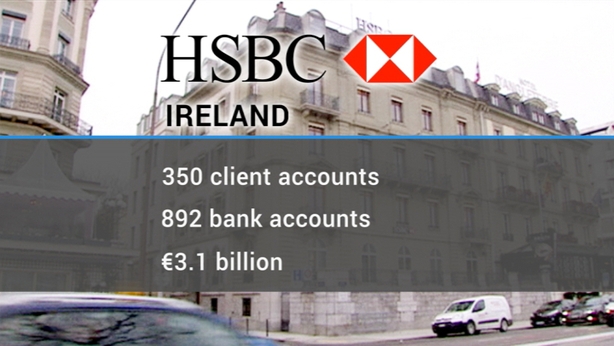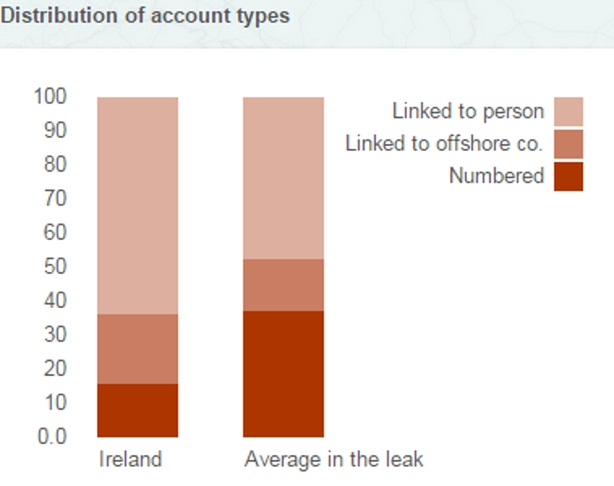The world of banking is reeling after it emerged financial giant HSBC was helping wealthy customers hide money from the tax authorities.
Details of its private bank in Switzerland were released after a whistleblower leaked information about clients around the world who had been availing of Swiss bank secrecy laws.
A total of 350 people associated with Ireland held 892 accounts with HSBC in Geneva worth a total of €3.1bn.
Twenty Irish account holders have since made settlements with the Revenue Commissioners worth over €4.5m.
Details from HSBC's private bank in Switzerland show bankers advised clients on how to keep money hidden from national authorities.
It also offered deals to help tax dodgers to stay ahead of the law. The bank says it has now changed.

British MPs said they planned to open an inquiry into HSBC, the country's biggest bank.
"Today's shocking revelations about HSBC further expose a secretive global industry serving a wealthy elite," said Margaret Hodge, a Labour MP and chair of the Public Accounts Committee.
"The committee will be launching an urgent inquiry to which we will require HSBC to give evidence - and we will order them if necessary."
Authorities in France, Belguim and Argentina are now taking legal action against HSBC.
The information came from documents obtained by the International Consortium of Investigative Journalists (ICIJ) via Le Monde newspaper.
Owning a Swiss bank account is not against the law, however using an account to avoid paying tax is.
The files show HSBC's Swiss bank routinely allowed clients to withdraw "bricks" of cash, often in foreign currencies which were of little use in Switzerland; marketed schemes which were likely to enable wealthy clients to avoid European taxes; and colluded with some to conceal undeclared accounts from tax authorities.
HSBC is a company which prided itself on high standards of corporate responsibility.
It said that its Swiss arm had not been fully integrated after its 1999 purchase, allowing "significantly lower" standards of compliance and due diligence to persist.
It said the Swiss private banking industry, known for its secrecy, operated differently in the past and this may have resulted in "a number of clients that may not have been fully compliant with their applicable tax obligations. We acknowledge and are accountable for past compliance and control failures".
Its private bank, especially its Swiss arm, had undergone "a radical transformation" in recent years, it said in a detailed four-page statement.
HSBC said the number of accounts in its Swiss private bank had fallen from 30,412 in 2007 to 10,343 at the end of last year and it was cooperating with authorities investigating tax matters.
The data was supplied by Herve Falciani, a former IT employee of HSBC's Swiss private bank.
HSBC said Mr Falciani downloaded details of accounts and clients at the end of 2006 and early 2007.
French authorities have obtained data on thousands of the customers and shared them with tax authorities elsewhere.
Some of the details of the list have been released before. The names of 2,000 Greeks with HSBC accounts was made public in 2010 and dubbed the "Lagarde List" after former French finance minister Christine Lagarde.
France passed the names to Greece to help it crack down on tax evasion.


